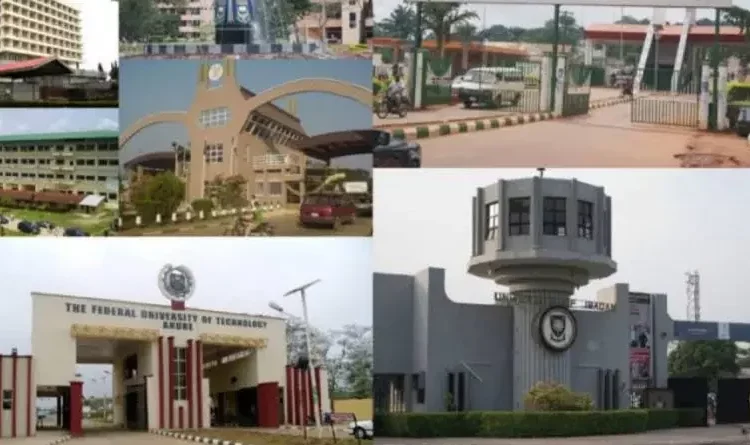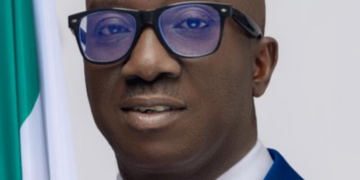Not long ago, the Academic Staff Union of Universities (ASUU) expressed serious concerns on what it described the political interference in vice-chancellor appointments, highlighting the controversy surrounding the Acting Vice Chancellor of Alvan Ikoku University of Education, whose promotions were “fraught with a lot of contradictions.”
Its sister Union, the Senior Staff Association of Nigerian Universities (SSANU) recently in Otuoke, Bayelsa, expressed similar worry over university governance in Nigerian universities. The leaders of SSANUlamented bitterly how appointment of vice chancellors in Nigeria’s public universities had been reduced to the level of “constituency projects.”
These concerns were not hyperbole, they were expressed out of genuine fears over what our public universities have become over the years. Increasingly, the selection of university leaders has become a political game of patronage, where loyalty counts more than competence. And so, the very soul of the university – independence of thought and meritocracy – has been compromised at its roots.
We are reminded, too, of the scandal that broke earlier this year when sections of the media reported that lawmakers allegedly demanded “appreciation money” from vice chancellors before passing their universities’ budgets. Some institutions, already starved of funds, were compelled to part with millions in order to get their budget passed by the National Assembly. What message does this send? That public university survival depends not on efficiency, transparency, or accountability, but on how much one can “settle” powerful hands for their budgets to be approved. The idea of the university as a sanctuary of integrity collapses under such weight.
Public universities’ near-total dependence on government allocations leaves them hostage to political shifts and macroeconomic shocks. That chronic unpredictability starves maintenance, starves teaching and research budgets, and makes it impossible to retain and reward talented academics – forcing administrators into short-term triage that corrodes institutional strategy and scholarly excellence. Because funding follows changing policy priorities, long-term investments in labs, libraries and staff development are repeatedly postponed or abandoned. The human cost is immediate and unequal. University students pay the heaviest price. The recently launched Nigerian Education Loan Fund (NELFUND), conceived to relieve tuition burdens, has been undermined by reports of double-billing, delayed disbursements and collusion between some banks and institutions, turning a promised safety net into a bureaucratic trap. For young Nigerians from modest homes, this is a daily betrayal that now demands systemic reform.
Added to this is the mismanagement of scarce resources either allocated or internally generated by the university managements. Take for instance the incidence at the Federal University Oye‐Ekiti (FUOYE), where a visitation panel laid bare a catalogue of mismanagement. Lecturers were suspended without due process. Unqualified staff were appointed into sensitive positions. Audits were neglected, and finances blurred by irregularities. What was uncovered there was not peculiar; it is symptomatic of a wider culture of disregard for rules, where impunity is more certain than sanction.
Although the university denied all the allegations, but reports like this further exposed the deep crises in the Nigerian public university system.
But the report by the Athena Centre for Policy and Leadership revealed that out of 64 universities surveyed by the organization, none of them published its budgets, audited accounts, or visitation reports online. This further show how our universities, run on public subventions, and supposed to serve the public good, operate behind closed doors.
All the while, the political class continues to announce new universities as if they were building motor parks. Each state now boasts multiple campuses, many without professors, laboratories, or even libraries worthy of the name. The vice chancellor of Fountain University, Professor Olayinka Kareem, was not exaggerating when he declared that no Nigerian university has enough professors. The proliferation of institutions without adequate faculty is decay masquerading as expansion.
The effects ripple outwards. Brain drain continues as our brightest academics seek dignity and stability abroad. Graduates emerge from overcrowded lecture halls into a world that questions their readiness. Parents lose faith and push their wards into private universities, further widening inequality. The very notion of the university as a leveller, a place where the son of a farmer might sit beside the daughter of a banker and both find opportunity, is disappearing.
This newspaper maintains that our public universities are not privileges handed out by politicians. They are public goods – pillars on which a nation builds its future. To mismanage them is to shortchange students and lecturers; and invariably mortgage Nigeria’s tomorrow.
We believe that transparent and meritocratic appointments of vice chancellors must be enforced. Universities should be compelled to publish budgets and audited reports. Visitation panels should not be perfunctory but carry real consequences. We hope the suspension on reckless proliferation of universities must be implemented with all seriousness; government should strengthen existing ones through funding. This funding must be stable, predictable, and tied to performance, not to politics.
For too long, we have allowed short‐term interests to override long‐term vision. Yet the stakes are existential. Already we are seeing the consequences, the political elite do not trust our doctors, engineers, teachers, and innovators. They transferred their healthcare and that of their families to European and Asian hospitals, their children education to universities in US, Europe and Asia, to some extent even to Sudan and Uganda. A country that neglects its universities is not just gambling with the future– it is sabotaging it.





